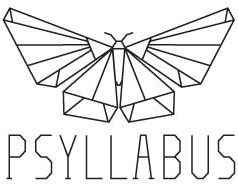MICHAEL BALINT
Michael Balint (Mihály Maurice Bergmann) was born on December 3, 1986 in Budapest in a family of Hungarian Jews. His father, Ignac Bergmann, was a general practitioner. Mihály (who changed his confession and name against his father’s will), following his own interests, had planned to study engineering, but under his father’s influence undertook medical studies. The First World War, in which he at first took part on the front line in Russia and then in the Italian Dolomites, where he was injured, interrupted his education. After the war he resumed medical studies and graduated in 1920 in Budapest. His scientific contacts with Sándor Ferenczi, the first academic professor of psychoanalysis in the world, date from 1919. Balint attended Ferenczi’s lectures, underwent personal psychoanalysis with him, including training
analysis, and remained under the influence of this outstanding psychoanalyst for many years. When he was a young student, Balint also got interested in chemistry, physics and mathematics. In 1924 in Berlin at the age of 28, Balint received his doctorate in biochemistry. At the same time, he maintained his interest in psychoanalysis and the unconscious mechanisms of the human psyche, which made him recognize the major importance of the doctor-patient relationship in the course of treatment. He was invited to Manchester by the president of the International Psychoanalytic Society Doctor Rickman and in 1939 immigrated to England.
In Great Britain due to a reform in November 1946, the National Health Service was established. The main role was entrusted to general practitioners who had the onerous task of delivering free universal health care, which included medical, psychological and social aspects of care that often exceeded the abilities of physicians at the time. Michael Balint involved himself in the process of general practitioners’ education and offered them his innovative programme. In 1945 as a psychology graduate, he started to work with practicing physicians, in 1947 he was permitted to practise psychoanalysis professionally and he became a member of the British Psychoanalytic Society. Balint believed that in the different roles of psychoanalyst, psychologist and medical doctor, he could solve many problems that surface in general practice. In his opinion, doctors did not have to undergo a specific training and become psychoanalysts. Instead, he proposed a different approach that was novel at the time. This looked critically at the doctor-patient relationship. Balint aimed at increasing the skills of general practitioners, especially their competence in psychology. He started training seminars at the Tavistock Clinic. With as team of fourteen GPs and a psychiatrist he launched a research project aiming at an in-depth analysis of the doctor-patient relationship. The conviction underlying the programme was that a person’s psyche could be best understood directly dealing with the person. Mental health problems are therefore reflected in the relationship into which the patient enters with the physician. In Balint’s opinion, the most beneficial form of GP education is the discussion seminar in which authentic and specific cases from the participants’ practice are discussed. Initially Balint led the group and a psychiatrist participated in the interpretation of cases. Methods of group work and understanding of their objectives evolved over many years and was reflected in the author’s publications.
Balint worked at the Tavistock Clinic near London and at the University College Hospital where he continued his analysis of the doctor-patient relationship and trained GPs until the end of his life. He believed the best medicine is the doctor himself. Together with his wife Enid (who was employed at the Institute of Interpersonal Relations at Tavistock) they worked on what was later called Balint groups and also trained social workers in marital therapy. They created a partner therapy model operated by two therapists and established case-discussion seminars. In 1952, Balint initiated training in discussion groups for therapists dealing with psychosexual disorders in the Family Planning Association. He also established The Institute of Studies on Psychosexual Disorders. In 1968, he was elected president of the British Psychoanalytical Society.
Michael Balint died in London on December 31, 1970. His wife Enid worked with him until his death and was his co-leader in the group work. After Balint’s death she continued his work in practice and in numerous publications. His son from the first marriage, Professor John A Balint, is also involved in medicine and psychology; he is a teacher and an active speaker. Balint’s ideas are still alive and promoted by Balint Associations in many countries of the world. They are used in clinics and institutes named after him, for example Michael Balint Institut für Psychoanalyse, Psychotherapie und Analytische Kinder – und Jugendlichenpsychotherapie in Hamburg.

